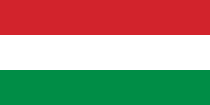Technology Transfer Center
/en-img-ttk-logo/$FILE/ttk-logo.gif)
In 1998, the Budapest University of Economic Sciences decided to establish the Technology Transfer Center whose mission is to build a bridge between the economy and higher education, to serve the two-way knowledge transfer. The center has multiple duties. It has to be on the forefront of discovering, testing the most advanced technologies, and it has to spread innovation in university research as well as education. On the other hand, the Center has to work on real-life application problems so that it can recognize the real needs of the economy, and the public sector. Another of its important tasks is preparing university research for the challenges of the information society. In brief, it is the Center of interactive multimedia-content distance learning.
The Center has already made real efforts in spreading the multimedia based distant learning, it is the center of the university considering video-communication based solutions. (With its advanced video-conference system we have joined lectures of America universities, and vice versa.)
Our first real task was related to the Y2K problems, we have conducted the required education, project planning. At the Pannon GSM Corp. (a mobile network service provider) we have done advisory work connected to the implementation of the SAP system. At the Commercial and Credit Bank we have planned the IT Controlling system.
The Center mainly works on projects, within ad hoc engagement agreements and/or tenders. Its technical level is up-to-date, it is capable for multimedia developments, video-communication, video-conferencing.
The Center has good relations with the leading software companies, our main partners are: SAP, SAS Institute, Hewlett-Packard, Scala, Libra, CISCO, Unitis, and also Hungarian companies, like: Memolux, Synergon.
The Technology Transfer Center co-operates strongly with the Department of Information Systems within BUESPA.
In the last years the Department of Information Systems have made serious efforts to develop the IT education. Its main focus is to develop the information technologies' education, so that will best fit the university's profile, and will enable the students to manage the information systems in real-life situations. The Department dealt first in Hungary with information management education.
The Center is also active in the world of scientific events. We have organised two noticable events: in 1998 we have organised a DATAwarehouse conference, where each significant solution supplier was present. In the January of 2000, together with six CEMS (Central Europeen Management Schools) institutions (Cologne, Stockholm, Copenhagen, Milan, Berger, Rotterdam) we have organised a two-day conference on e-business.
In 2002 with the Business Intelligence Solutions Ltd we have made strategical planning - based on data warehouse technology - workshops. The number of the participants was 10-14 per workshop.
The Center and the Department together are involved in organizing courses, for example we kept the 'Financial audit based on SAP R/3 system' one week course several times in 2002. We have also taught about the Balanced Scored Card, on a two day course.
Research possibilities mainly are provided by tenders. We had several succesful R&D projects in the last years:
'Knowledge intensive technologies in the development of global information infrastructure'
Ministry of Education R&D program, No. 1355/1997.
The program aim was to base a methodology, which can be used to describe, analyse the behaviour of the business organisations. We used the tools of artificial intelligence to modell the global information infrastructure. We demonstrated the effectiveness of our proposal using case studies. We managed the integration of the methods and tools with the help of the theory and practise of the corporate ontology (CommonKADS methodology).
Video-based, Interactive Services on Wide-band Cable Systems
The goal of the research is to design and track a real-life experiement in Hungarian environment on video-based services recepted by the population, and to estimate the technical and operational experiences. The research focuses to the following areas:
- The behaviour of the classical costumer: interactive transmissions, games, films, entertainment.
- Business to Business connections: Business utilities to the enterprises in e-business development, marketing, finance, tax and trust consultancy, business partner finding, etc.
- Business to costumer connections: Business and public utilities to the costumers, ex: distance learning, shopping, telebanking, health-care services, administrational possibilities.
The experimental area consists of the population of a local cabel provider. The experiment based on 500-1000 household on this area. The duration of the research is 12 months.
ECRIME
Expert System Support for the Judgement Making Process of Tribunals
The purpose of this Hungarian Information and Communication Technologies’ Application project is to support the modernization and development of the justice system by developing and testing new knowledge management tools and procedures.
ADVISOR
Knowledge Based Expert System Development
The goal of this project is to develop a Knowledge Based Expert System, using the current theories, and documented practices. The favored methodology using for this project is a CommonKADS methodology, developed by the University of Amsterdam. For the system development the CA's AION Develompent system is used.
'Implementation of Knowledge and Software Repository to Support Electronic Commerce and Development of a Reference Electronic Shop'
(IKTA 17/99 Application)
Technology Transfer Center of the BUESPA (Budapest University of Economic Science and Public Administration) in cooperation with the Budapesti Piac Ltd. has initiated a joint research and development project to develop an electronic-commerce oriented knowledge and software repositiory, and to implement an electronic store.

